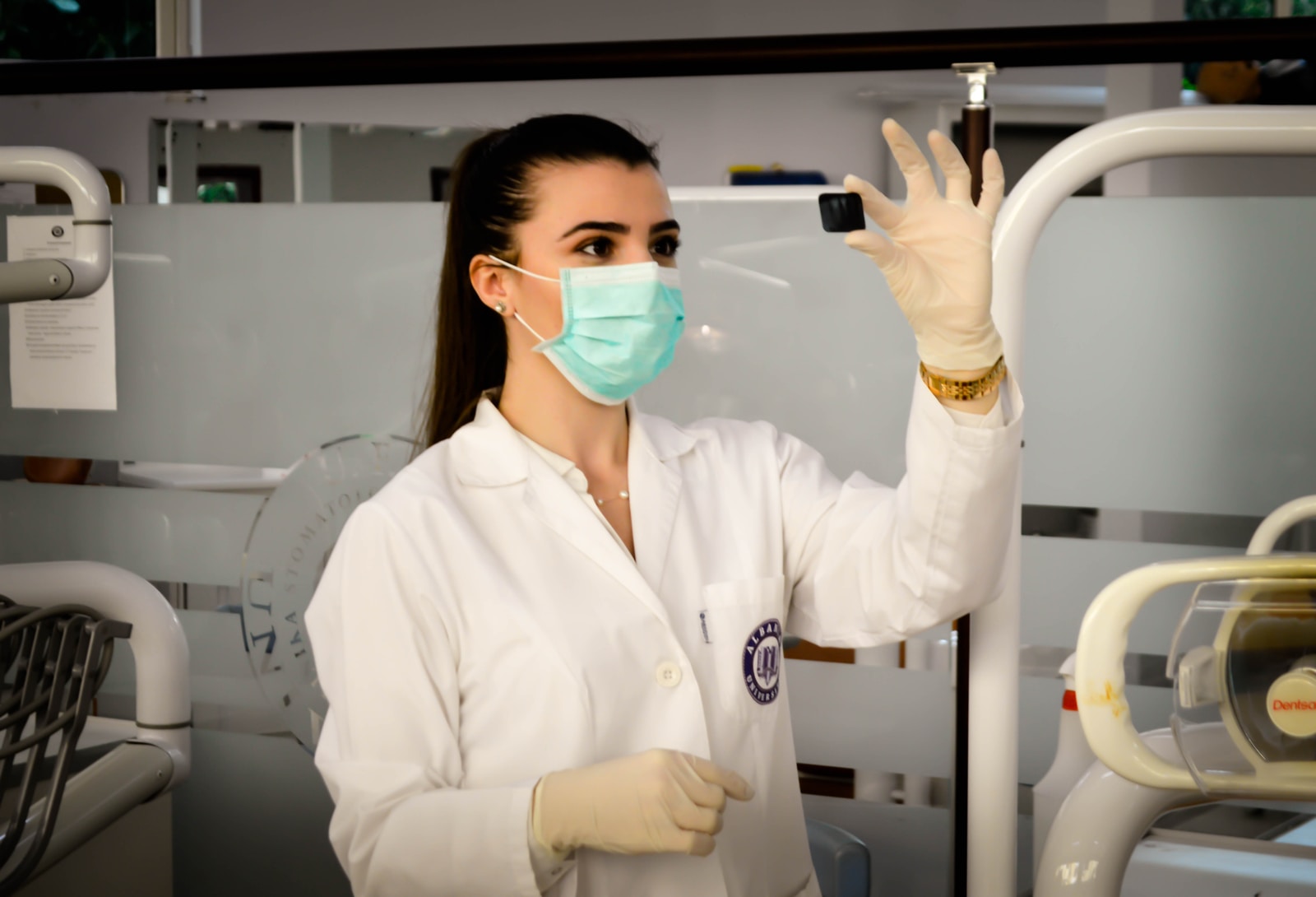As a nursing student, you are about to embark on one of the most challenging and rewarding journeys of your life. The clinical component of your education will be an invaluable experience that will test your knowledge and skills like never before. You need all the help you can get including some nursing school clinical tips from those who already survived medical school.
To help make the most of your time in the clinic, here are ten tips that every nursing student should know, here are ten tips.
Stay Positive
There’s no way around it: To be able to work as a nurse, you have to complete the clinical experience. However, what you choose to do with your clinical experience is up to you. You can learn from each situation and use that knowledge later on in your career. Some may say that their clinical rotation was one of the most frustrating, annoying experiences, but some look back and realize they learned more from their mistakes than their successes.
Try to stay positive throughout your time in nursing school (even when it seems impossible). If you’re having a bad day or an instructor or preceptor yelled at you, take a deep breath and remember that this is all part of becoming a better nurse. Remember why you went into the nursing program in the first place—because you wanted to help people! Look ahead and think about those who will depend on your skills as an RN. In situations where I feel overwhelmed during my journey through nursing school, I think of others who will depend on me for care and how much I want them to receive high-quality care from me someday.
Keep an Open Mind
As a nursing student, your instructors and the nurses you work with will be happy to share their knowledge with you. Listen to them, but keep in mind that they may not have all the answers. Don’t reject ideas without considering them; later, you may need those skills. Also, don’t assume you know it all or understand everything right away; accept that there are gaps in your knowledge and try to fill them by learning more about what’s going on around you.
Actively Listen
As a nurse, you’ll listen to patients for the most important details about their condition. It’s not just about listening to what they’re saying but also paying attention to how they say it and their body language.
Patients will often tell you everything you need to know with their first sentence if you are willing to listen attentively.
Here are some tips for improving your active listening skills:
-
Use both your ears and your eyes. The patient’s face can convey a lot of information about the hidden meaning in their sentences. Did the patient’s eyes get big when she mentioned her pain level? Did her voice change when he talked about his family history? Did he emphasize one word or another? Was she agitated or calm when describing his symptoms? All these clues will help you determine what is going on with the patient.
-
Don’t interrupt! Let them finish telling their story to know they have been heard and understood before moving on with your exam or treatment plan.
-
Listen for the whole story. Do not jump right in and try to solve the problem before hearing all of it! You may miss an important detail that changes everything if you don’t listen carefully from start to finish. This includes asking questions at appropriate times during the interview rather than immediately diving in with 20 questions because it seems like there is a lot of info missing from the history given by the patient!
Always ask questions
You’re sitting in a classroom, and you feel like you have a question. You wonder if it is the right question. What do you do? Ask it! The act of asking questions is one of the best ways to progress through nursing school successfully. It shows that you care about what is happening in class, are engaged with the material, and think critically about the course content. Asking questions exposes your strengths and allows instructors and classmates to help you improve on your weaknesses. In addition, asking questions will enable peers to learn as they can compare their answers with yours.
Don’t be rude or sarcastic.
Be respectful to everyone you come in contact with. As a nursing student, you represent your program, so make sure that you’re putting your best foot forward. You’ll find that the way you treat people trickles down to how they treat you. This can dramatically impact how many learning opportunities open up to you while on clinical rotations.
Be professional at all times.
No matter what type of uniform you wear (or don’t wear), always follow the dress code. Follow the personal hygiene guidelines set by the facility where you are completing clinicals, too. This means no mini-skirts or low-cut tops and no body odor! Keeping these things in mind will help other healthcare staff take the time to teach and include you in patient care activities, rather than have them try to make themselves scarce when they see a nursing student coming!
Show up prepared for class and at clinical sites.
This is one of the most important nursing school clinical tips: Always show up prepared every day at class and your clinical sites.
If you want to be successful in school and life, you will want to bring a few things with you all the time: pens or pencils, a notebook or binder, and a planner. Not only will these things help you keep track of what is going on in school, but they will also help you organize your other responsibilities like work schedules.
If you are going to clinical sites, there are a few things that we think would be helpful to bring along with you: white scrub pants (some facilities require this), a stethoscope (if your program requires this), a paper notepad for writing down notes and observations (if needed), and any personal items that would be helpful for keeping yourself organized (like a wristlet with wallet). You will also want to make sure that your hair is out of your face if it’s long to not get in the way when working with patients. Depending on where you’re going, you may need different outfits, so check ahead!
Before heading off for class or clinical site, something else important is ensuring that everything is up-to-date: vaccinations and physical exams. Some schools require vaccinations for TB skin tests or titers annually. Others require yearly physicals through their health centers before allowing students into hospitals where they could potentially expose vulnerable populations like infants/children/elderly adults/etc.
Get your name tag as soon as possible, and wear it everywhere
As soon as you start nursing school, get your name tag. Some nursing schools will give you one automatically, while others require you to order it.
However, every student must wear a name tag because:
-
You might be mistaken for an actual nurse without it — especially if you’re wearing scrubs. There are multiple instances of students being mistaken for nurses at hospitals and clinics. (These facilities might seem chaotic, but there is no excuse for this error.)
-
When they realize that you’re not an actual nurse, some patients and their families could be outraged in certain situations — like when they believe that the delivery of care to their loved one was compromised by a student instead of a professional RN.
-
If there is a lawsuit or other negative consequences against the hospital or clinic due to your actions, not having on your name tag could cause them to take any legal action against the nurse who owned the badge (since you’ll probably have been using their badge).
Use each new opportunity as a learning experience.
You will be assigned to different clinical locations with various preceptors and patients each semester. This can be overwhelming, but don’t panic. Rather than stress yourself the unknown, use each new opportunity as a learning experience.
Every nurse has made mistakes. Whether you are caring for your first patient or your 100th patient, you can learn some lessons from everyone you meet—including colleagues who have been in the field longer than you. (And yes, this means that even the most seasoned nurse is still learning.) You may not know everything just yet, but by paying attention to what other nurses do or say on the job, you can learn from their experiences and avoid those pitfalls yourself.
As a nursing student, it’s essential to focus on applying each new lesson as quickly as possible. The key is to identify these lessons and take something away from them, so they stick with you long after the clinical ends. You’re already doing this while at school; now it’s time to apply that knowledge during clinicals, so it becomes second nature by graduation day!
Finally, remember that nursing is one of those careers where lifelong learning is essential for you to continue advancing professionally and caring for patients effectively over time.
It’s vital for all nurses—especially students like you—to stay up-to-date on the latest best practices so that when situations arise where there isn’t an official protocol to follow (or if existing protocols need updating), you’ll be prepared with the skills required to address them appropriately based on your own experience and judgment as well as industry standards and guidelines.
Never turn your back on a situation that needs to be addressed. Stand up, look around, and handle the situation with confidence.
Always be assertive but respectful and professional. Nursing students are still learning, and the other nurses know that. They don’t expect you to do everything perfectly–they do expect you to step in, take control of situations, and have the confidence to keep moving forward when things get stressful.
That means not turning your back on a situation that needs to be addressed; instead, stand up, look around, speak up and handle any situation confidently.
Takeaway: These nursing school clinical tips can help you better prepare for your first clinicals and make them more enjoyable.
-
Stay positive
-
Keep an open mind
-
Be an active listener
-
Ask questions in a respectful manner
-
Be polite and not sarcastic or rude to your fellow students or professors
-
Read the syllabus and assignment instructions (don’t wait until the last minute)
Summary – Easy Nursing School Clinical Tips
Although the transition to nursing school clinicals can be difficult, it is essential to remember that you have many resources available to you. Utilize your classmates, instructors, and other nurses on your unit as often as possible. Ask some nursing school clinical tips. Remember, everyone is there to help you succeed! What are some of your favorite tips for surviving nursing school clinicals? Share them in the comments below!
Nursing School Clinical Tips: Frequently Asked Questions
Is nursing clinical scary?
There’s no question that nursing clinical can be a bit scary, but that’s part of the fun, right? I remember my first time in the hospital setting and how anxious I was. But it’s all good once you get started and realize that most nurses are happy to help.
Of course, you always want to be prepared for your nursing clinicals by studying hard and knowing your stuff. But don’t forget to have a little fun too – after all, you’re only in school once! So go out there and give it your best shot. And who knows, maybe you’ll even enjoy yourself in the process.
How do I stop being nervous about clinicals?
The nerves before clinicals are normal! Here are a few things that have helped me in the past:
-
Deep breathing exercises/meditation.
-
Envision myself going through each station calmly and confidently.
-
Listening to calm music.
-
Writing out a script of what I would say at each station.
-
Practicing with a friend or family member beforehand.
-
Staying positive and telling myself that I can do this!
How can I improve my clinical nursing skills?
There’s no one-size-fits-all answer to this question. The best way to improve your clinical nursing skills will vary depending on your strengths and weaknesses. However, some general tips that can help include studying hard for exams, staying up to date on the latest nursing research, and networking with other nurses to learn from their experience and expertise. You can improve clinical nursing skills by participating in continuing education courses. This includes attending conferences or seminars on relevant topics. Ultimately, the best way to enhance your clinical nursing skills is to simply put in the time and effort necessary to become the best nurse you can be!
How do I build my clinical confidence?
The best way to build clinical confidence is to get out there and start practicing. There’s no substitute for experience, so the more you can see and do, the better. There are a few things you can do to help build your confidence. Talk to your attending physicians and ask for their feedback. Find a mentor that you trust and can bounce ideas off. Join a study group or networking group with other similar-level clinicians. And finally, Observe procedures being done by more experienced clinicians. When in doubt, always err on taking action rather than inaction.















